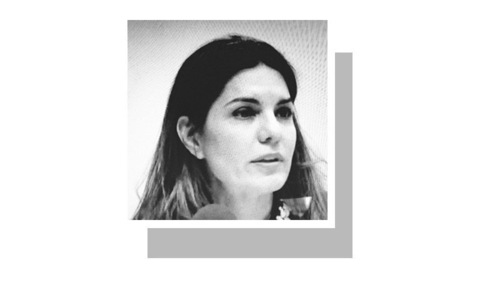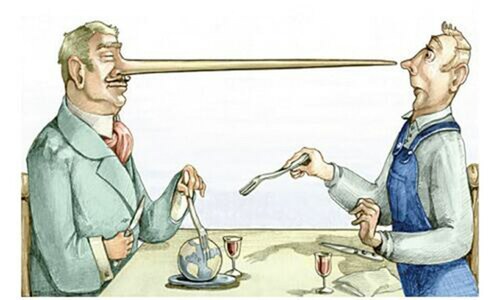WE love to berate the West, not that it discourages us from doing so. However, we must think hard to come up with an answer to the mother of all questions: can economics be separated from culture? Let us unbundle this.
In Pakistan we love nothing more than hating the Yanks, right? A sure-shot recipe for winning elections. How about the dollar, the lure of immigration, technology, scholarships at top-notch universities though? We are not loath to make use of these, but... . Herein lies the complexity. The ‘but’ is always followed by a rider that has something to do with ‘our culture’ and its perceived superiority over theirs. In other words, we want our culture but also the industrialised world’s economy.
The above argument refuses to die down because we will not acknowledge the connection that economy has with culture, including the ‘superior’ one we are willing to temporarily abandon in favour of the ‘inferior’. The ‘suspension’ too only lasts till we set foot in the land of opportunity. Soon after arrival, we want to impose our culture while savouring their economy whose fruits include social security, healthcare, free basic education, unemployment benefits, student loans, home finance, etc. But, they have learnt all of it from us, goes the argument. Our faith ensured all the above, even when the Europeans lived like barbarians.
Fine. But if we had not forsaken all of it, why would we need to uproot ourselves and bear the humiliation of living in ‘their’ culture, eking out a better living pumping petrol and flipping burgers than the white-collar jobs in the superior culture steeped in spirituality? Ask a question like ‘doesn’t this make their culture better than ours?’, and the answer usually is, ‘but, all of that is because their economy is better than ours’. So, we are confused, if not outright hypocrites.
We see the importance of the economy but insist that it exists in some bubble outside culture and the society that practises it. Additionally, ‘their’ economy is built upon repression, and the blood of millions of innocent human beings lubricates its wheels. Lest anybody forget, remember what was done to the Native Americans? How about the slave trade from Africa? Do not even get us started on Vietnam, Chile and the ‘regime change’ frenzy whose most current episode ran in Islamabad. Spot on, no?
Why do we bear the humiliation of living in ‘their’ culture?
It is hard to absolve it of most of these wrongs. The Western economy, particularly that of its leading superpower the US, is built upon hundreds of years of repression and brutality both at home and abroad. How about the pyramids of skulls erected by Timur, though? We have no qualms naming our boys after him or his ancestor Changez. What about the Armenian genocide? Who wants to even know about it, leave alone lay a claim to it? So, if that was perpetrated by the Turks and they are not ‘us’ then how is Timur ours? Was he not of Turkic origin? How are the Arab conquests ours because they are our co-religionists, hence making them ‘Muslim conquests’, but the Armenian genocide cannot be laid at our door because a different people unleashed it? Were they not our co-religionists as well?
Read: Economy, not culture
No. The purpose of this piece is not to hold the West’s brief, least of all that of the Americans’. Let us for argument’s sake conclude that they are all bad and will eventually get their comeuppance. The question is, why are we bent upon making our lives a living hell by refusing to see the link between culture and economy?
It was not too long ago that seemingly every Afghan, man, woman and child was trying to scale the parapets of Kabul airport, to escape the next citadel of superior culture even if it meant hanging by the wheels of a plane leaving for the lowest sections of hell in the West. They did that knowing that their daughters would not be allowed to attend school.
What were we up to then? We went door-to-door across the world holding a brief for the Afghan Taliban. We beseeched the world to go easy on them, otherwise wave upon wave of refugees would head towards Pakistan. True. However, we forget to add that it is so because we refuse to acknowledge Afghanistan as a sovereign country that is not our backyard for strategic depth.
The culture of shutting out half the population of the country from education is guaranteed to ruin the economy. Before anybody gets smug about how we in Pakistan are nothing like the regime across the Durand Line, do not forget that the thorns sowed in Afghanistan were exported from our nurseries of ‘haughty culture’. While Imran Khan has been derided as ‘Taliban Khan’, the new dispensation has amongst its ranks their biggest sympathisers. The hate culture is looking at the economies of scale.
The writer is a poet. His latest publication is a collection of satire essays titled Rindana.
Published in Dawn, April 25th, 2022












































